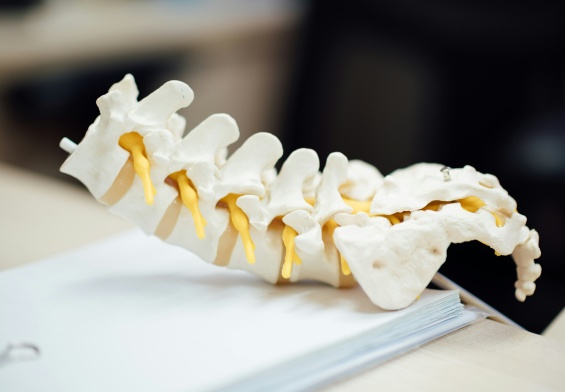Celiac disease, often referred to as celiac sprue, is a chronic autoimmune disorder that primarily affects the digestive system. It damages the small intestine, interfering with the absorption of vital nutrients from food. The term “celiac” is derived from the Greek word for “abdomen,” reflecting the disease’s impact on the digestive system. Those with celiac disease cannot tolerate gluten—a mixture of plant proteins found in grains such as wheat, barley, and rye. When gluten is consumed, it triggers an immune response that damages the lining of the small intestine, leading to nutrient malabsorption.
This condition is not just about diet; it has wide-ranging effects that can complicate the management of other chronic conditions such as diabetes and heart disease. For individuals managing multiple chronic conditions, in-home care can play a crucial role in ensuring that their dietary needs are met while also monitoring and managing their overall health.
Table of Contents
ToggleSymptoms of Celiac Disease
Diagnosing celiac disease can be challenging because its symptoms often overlap with those of other gastrointestinal disorders and can vary widely from person to person. Symptoms can range from digestive issues to less obvious signs that may affect various parts of the body due to nutrient deficiencies.
Gastrointestinal Symptoms
Some of the more common gastrointestinal symptoms include:
- Abdominal pain, gas, and bloating
- Diarrhea or constipation
- Nausea and vomiting
- Unexplained weight loss or gain
- Foul-smelling or oily stools
Non-Gastrointestinal Symptoms
Celiac disease can also manifest through non-digestive symptoms, particularly in adults:
- Fatigue and lethargy
- Depression or anxiety
- Anemia and easy bruising
- Joint pain and osteoporosis
- Skin rashes and mouth ulcers
- Numbness or tingling in the hands and feet
Children with celiac disease might experience additional symptoms such as:
- Delayed growth and puberty
- Irritability or fussiness
- Poor weight gain
- Tooth enamel defects
The Role of In-Home Care in Managing Celiac Disease and Other Chronic Conditions
Managing celiac disease involves more than just eliminating gluten from the diet; it requires a comprehensive approach to ensure that the body receives all the nutrients it needs while avoiding potential complications. This challenge becomes even more significant when celiac disease is accompanied by other chronic conditions, such as diabetes, heart disease, or arthritis. In these cases, in-home personal care can be a critical component of a patient’s overall health strategy, providing personalized support that addresses the unique needs of each individual.
Personalized Nutritional Management
One of the most crucial aspects of managing celiac disease is strict adherence to a gluten-free diet. However, when a patient also has conditions like diabetes or heart disease, meal planning becomes even more complex. For example, a patient with diabetes must control their carbohydrate intake to manage blood sugar levels, while also avoiding gluten-containing foods. In-home caregivers can work closely with dietitians and healthcare providers to develop meal plans that meet all dietary restrictions, ensuring that the patient receives balanced, nutritious meals that do not compromise their health.
In-home personal care providers can also assist with grocery shopping and food preparation, helping to avoid cross-contamination—a common risk for those with celiac disease. By ensuring that gluten-free meals are prepared in a safe environment, caregivers can prevent accidental ingestion of gluten, which could trigger symptoms and cause further damage to the intestines.
Medication Management and Monitoring
Celiac disease often requires patients to take vitamin and mineral supplements to address deficiencies caused by nutrient malabsorption. However, it’s important to note that some medications and supplements may contain gluten. In-home caregivers can help by managing medications, ensuring that all prescriptions, over-the-counter drugs, and supplements are gluten-free. They can also monitor the patient’s adherence to their medication regimen, which is particularly important for those managing multiple chronic conditions.
For patients with conditions like heart disease or diabetes, regular monitoring of vital signs—such as blood pressure, blood sugar levels, and cholesterol—is essential. In-home personal care providers can perform these checks, allowing for early detection of any potential issues and ensuring that the patient’s overall health remains stable.
Emotional and Psychological Support
Living with celiac disease and other chronic conditions can be emotionally challenging. The dietary restrictions imposed by celiac disease, coupled with the demands of managing other health issues, can lead to feelings of isolation, frustration, and anxiety. In-home caregivers provide not only physical support but also emotional and psychological care. They can offer companionship, helping to alleviate the loneliness that often accompanies chronic illness, and provide encouragement and motivation for patients to adhere to their treatment plans.
Moreover, caregivers can help patients manage the stress and anxiety that often come with chronic illness by introducing relaxation techniques, encouraging social interactions, and helping them maintain a positive outlook on life. This holistic approach to care is vital for improving the patient’s quality of life and overall well-being.
Preventing Complications
Celiac disease can lead to a range of complications if not properly managed, including osteoporosis, infertility, neurological conditions, and even certain types of cancer. When other chronic conditions are present, the risk of complications increases. In-home care providers can play a crucial role in preventing these complications by ensuring that the patient follows their treatment plan, receives regular medical check-ups, and addresses any new symptoms as soon as they arise.
For example, patients with both celiac disease and heart disease need to manage their cholesterol and blood pressure carefully to avoid cardiovascular complications. An in-home personal caregiver can help by monitoring the patient’s diet, ensuring they take prescribed medications, and encouraging physical activity within the patient’s capabilities.
Tailored Support for Specific Chronic Conditions
Different chronic conditions have unique needs that must be addressed in conjunction with celiac disease management. For example:
- Diabetes: Patients with diabetes need to carefully monitor their blood sugar levels, especially when dietary restrictions change due to celiac disease. An in-home caregiver can assist with this by helping the patient track their blood sugar, plan meals that are both gluten-free and diabetes-friendly, and monitor for signs of hypoglycemia or hyperglycemia.
- Heart Disease: Managing heart disease alongside celiac disease requires attention to both diet and physical activity. Caregivers can prepare meals low in sodium and saturated fats, which are essential for heart health, while also ensuring they are gluten-free. They can also encourage regular, moderate exercise, tailored to the patient’s health status.
- Arthritis: For patients with arthritis, maintaining joint health is a priority. A caregiver can help with mobility exercises and assist with activities of daily living, reducing the strain on the patient’s joints while ensuring that their diet supports bone health, which is particularly important given the risk of osteoporosis in those with celiac disease.
Conclusion: Comprehensive Care for Celiac Disease and Chronic Conditions
For individuals managing celiac disease along with other chronic conditions, in-home chronic conditions care offers comprehensive support that extends beyond meal preparation. It includes managing medication, monitoring health, and providing emotional support. If you or a loved one is struggling with celiac disease or other chronic conditions, consider reaching out to a healthcare provider or an in-home care service to ensure that all aspects of your health are effectively managed. With the right care, it’s possible to lead a healthier, more comfortable life even with the challenges of multiple chronic conditions.




